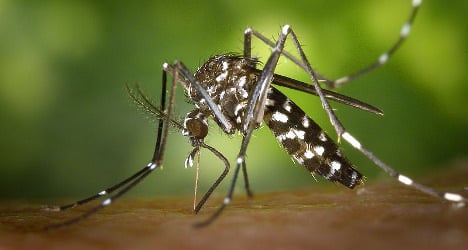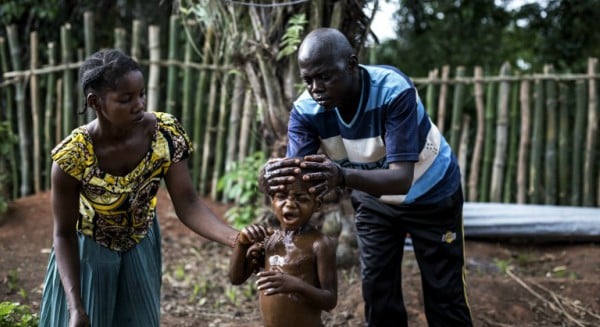French pharmaceutical giant Sanofi announced on Tuesday the delivery of the first anti-malaria drugs using a semi-synthetic version of their key ingredient to millions of patients in Africa.
Sanofi said that the development of semi-synthetic artemisinin – the weapon of choise against malaria – signalled a "new era" in the fight against the mosquito-borne disease.
Artemisinin is normally derived from a plant called sweet wormwood, but the weather can affect harvests of the plant, causing shortages and price spikes.
The drugmaker said it had been able to make 1.7 million treatments with the semi-synthetic alternative, which will be shipped to Burkina Faso, Burundi, Democratic Republic of the Congo, Liberia, Niger, and Nigeria in the coming months.
The World Health Organization gave the use of semi-synthetic artemisinin in malaria products the green light in May last year.
Sanofi said that "by complementing botanically-derived supplies, the new option can widen access to treatment for millions sickened by malaria every year."
According to the WHO's last malaria report, published last December, the disease killed 627,000 people in 2012, mainly children in Africa, with an estimated 207 million cases worldwide.



 Please whitelist us to continue reading.
Please whitelist us to continue reading.
Member comments